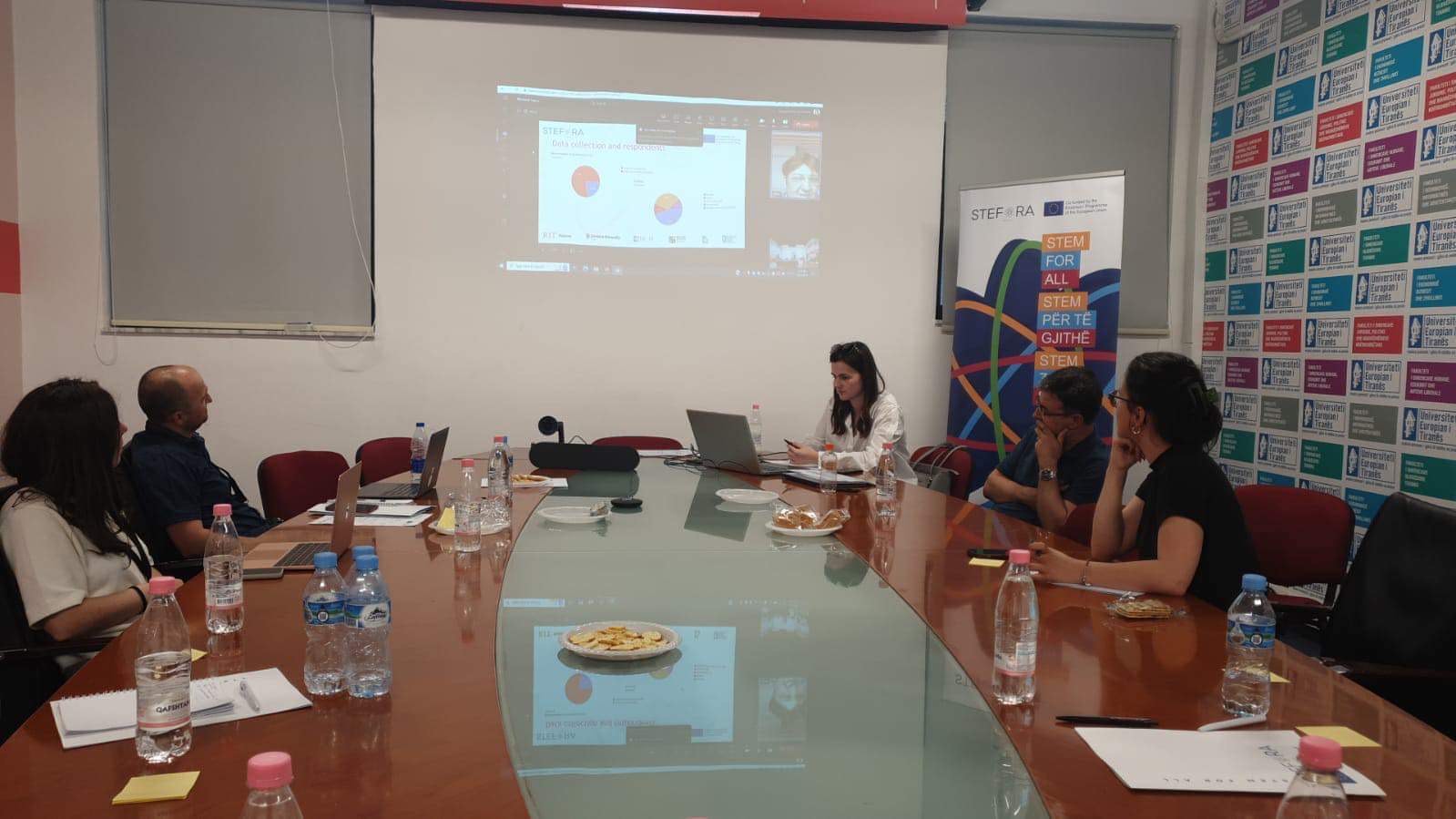STEFORA Final Quality Committee Meeting
Announcing the successful conclusion of the Final Quality Assurance Committee (QAC) Meeting under the STEFORA project. The meeting highlighted the collective efforts and shared commitment that have driven the project to its conclusion. Throughout these two years, the QAC implemented high-quality evaluation tools, including questionnaires and reporting templates, presenting a vital role in maintaining a high standard of accountability and effectiveness across all project activities.
The final meeting served as a platform to:
Present a draft of the Final Quality Report, which summarizes the outcomes of the committee’s efforts; Outline key findings and insights derived from the evaluation process and showcase the results of the Quality Plan Annexes, highlighting the impact of the evaluation framework and tools.
As the project officially concludes, committee members expressed their gratitude for the strong partnership and commitment to quality standards and the potential for future collaborations tools.
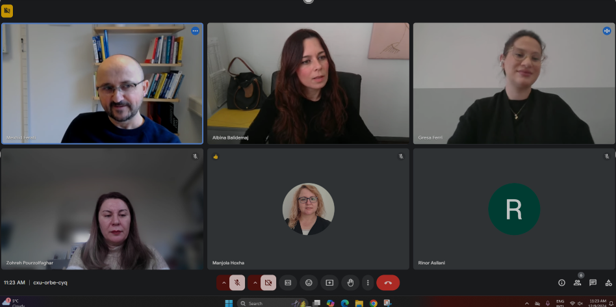
STEM for ALL: Sixth Editorial Committee Meeting on External Review Report
Successful completion of the Sixth Editorial Committee Meeting, focused on reviewing the External Review Report of Training and Teaching Module Materials! This report marks the culmination of a rigorous and collaborative evaluation process of the three education modules developed under the STEFORA project.
The committee concluded that the report reflects the dedication and professionalism of all involved and serves as a cornerstone for ensuring the project’s sustainability. By fostering inclusive, high-quality educational materials, this deliverable paves the way for advancing gender equality in STEM education across Kosovo and Albania.
Stay tuned for more updates as we continue working towards finalizing all key deliverables and sharing them on the STEFORA website!
STEM for ALL: Fifth Editorial Committee Meeting on Joint Publication
Successful completion of the Fifth Editorial Committee Meeting, dedicated to reviewing the D4.2 Joint Publication developed with equal contribution by all consortium members, led by Polis University. The committee concluded that the publication aligns with the STEFORA project objectives and commended the collaborative efforts of the consortium members, showing a strong commitment to advancing gender equity in STEM higher education. The committee recommended to refine some aspects of the publication in order to ensure it effectively represents all project’s achievements and insights.
Stay tuned for more updates as we work towards finalizing this important publication for dissemination on the STEFORA website!
STEM for ALL: Fourth Editorial Committee Meeting

STEM for ALL: Third Editorial Committee Meeting
The evaluation committee lead by Linnaeus University was unanimously voted by all editorial committee members.
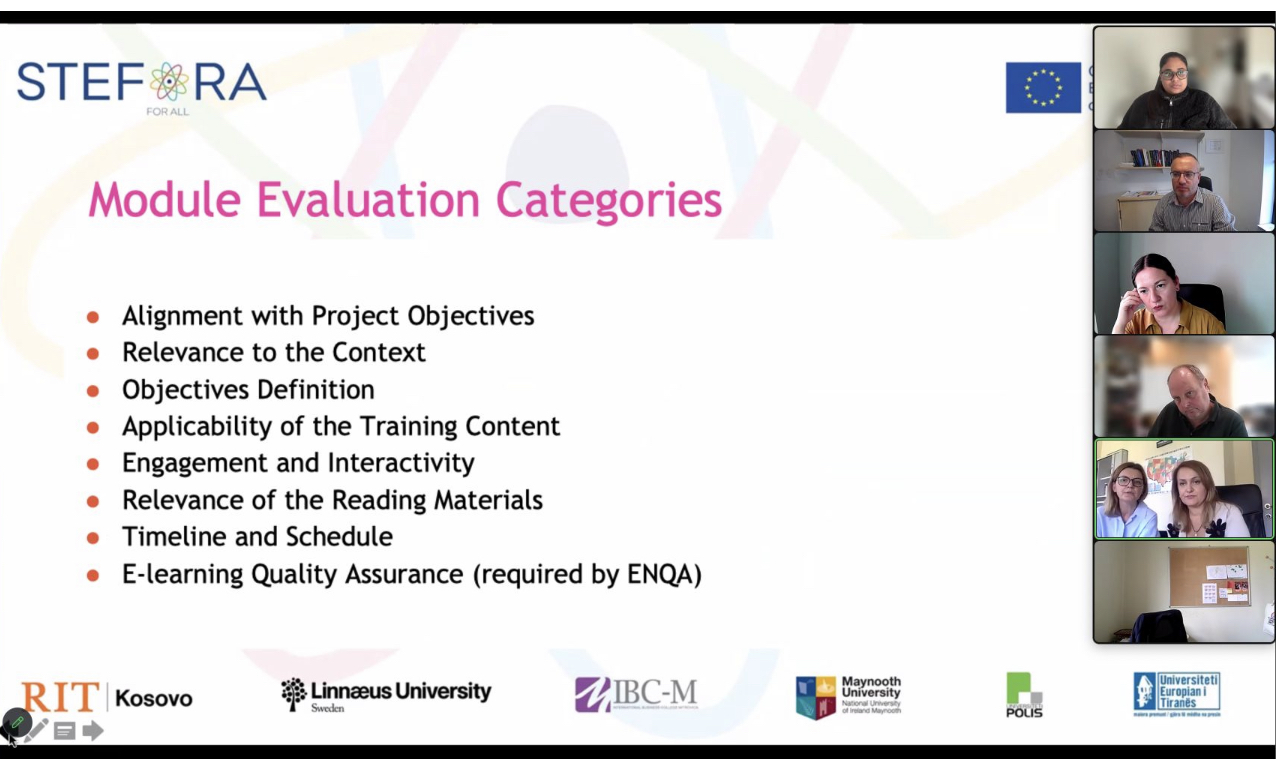
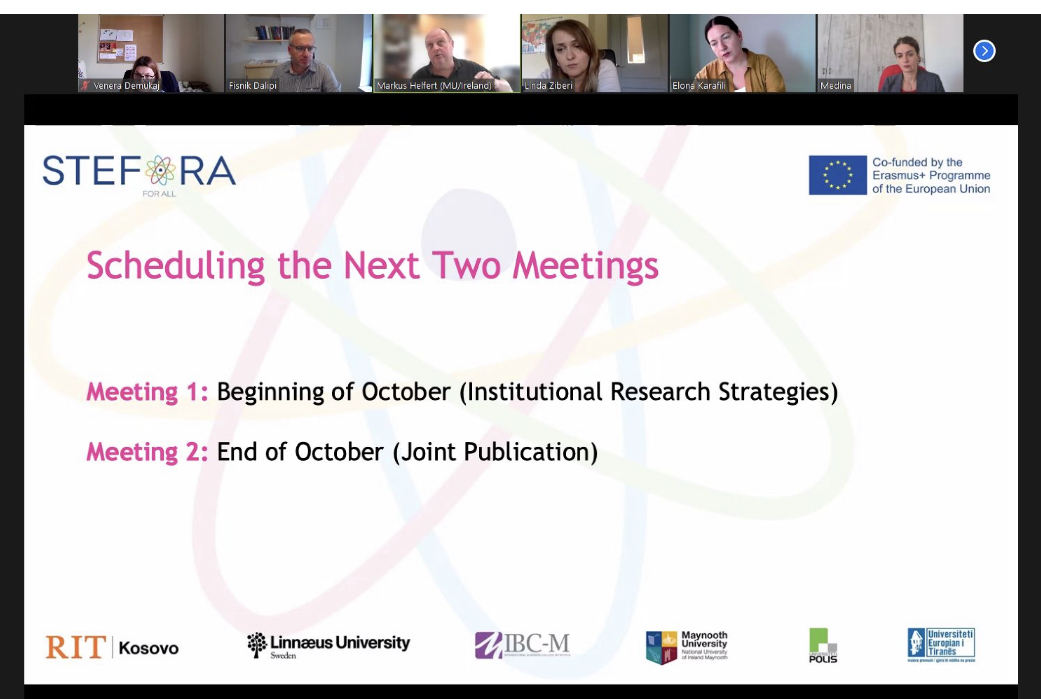
STEM for ALL: Second Editorial Committee Meeting held!
Completion of the evaluation of the Editorial Report of Three STEM Courses led by Dr. Mexhid Ferati from LNU University and finalization of the module evaluation guidelines, created as a team collaboration by all committee members. Selection of two additional representatives in the external evaluation committee for the three modules developed by RIT K, LNU, and Maynooth University.
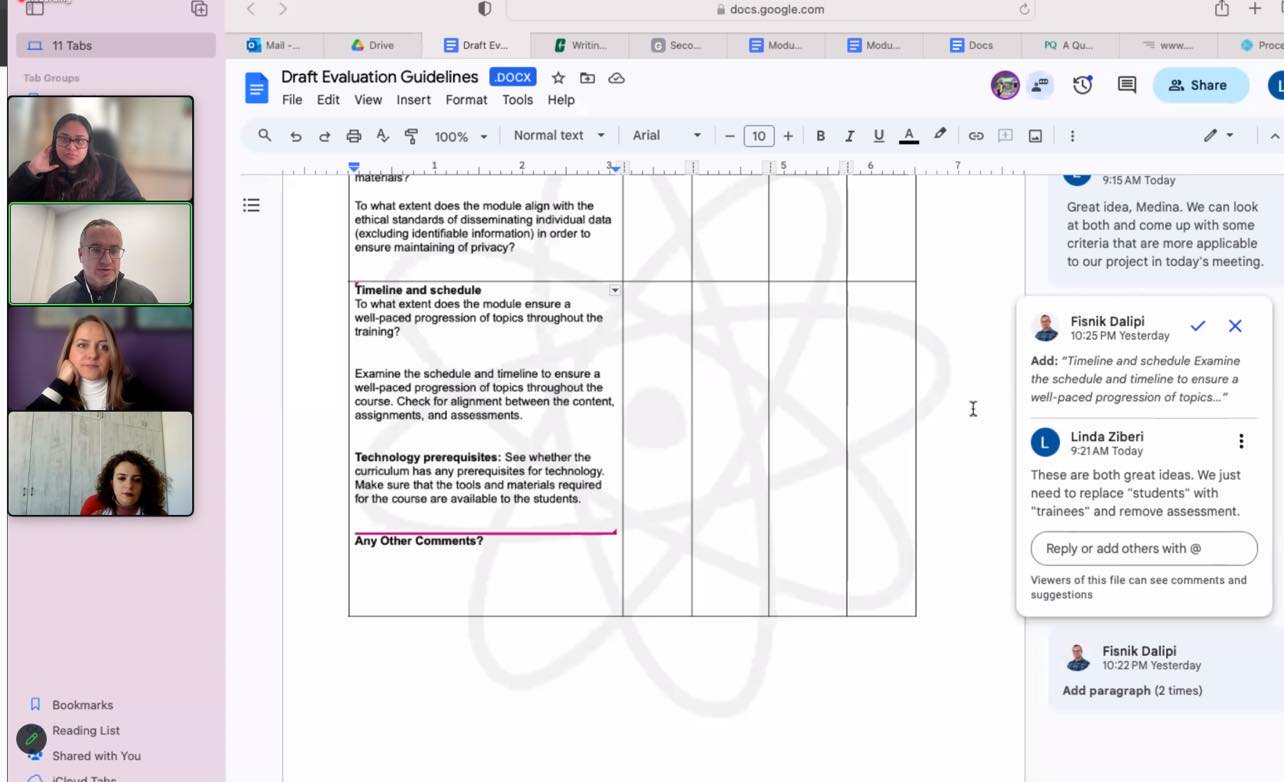
The First Editorial Committee Meeting
The first Editorial Committee meeting, conducted online, convened to discuss the committee’s role and the evaluation of education modules. The meeting consisted of six members, representing the respective member institutions of the consortium. The focus of the meeting was on the evaluation process for the Education Modules developed as part of WP2 and the Editorial Report produced by the LNU team.
The committee agreed that the first step of the committee will be to define the evaluation criteria to assess modules, considering the target audience, engagement level, and overall educational value. The committee scheduled a follow-up meeting to discuss and decide on the evaluation guidelines for the modules and the external evaluation team.
The first Editorial Committee meeting established a robust basis for the committee’s function and the assessment of educational modules, nurturing a shared sense of purpose and collaboration among its members.
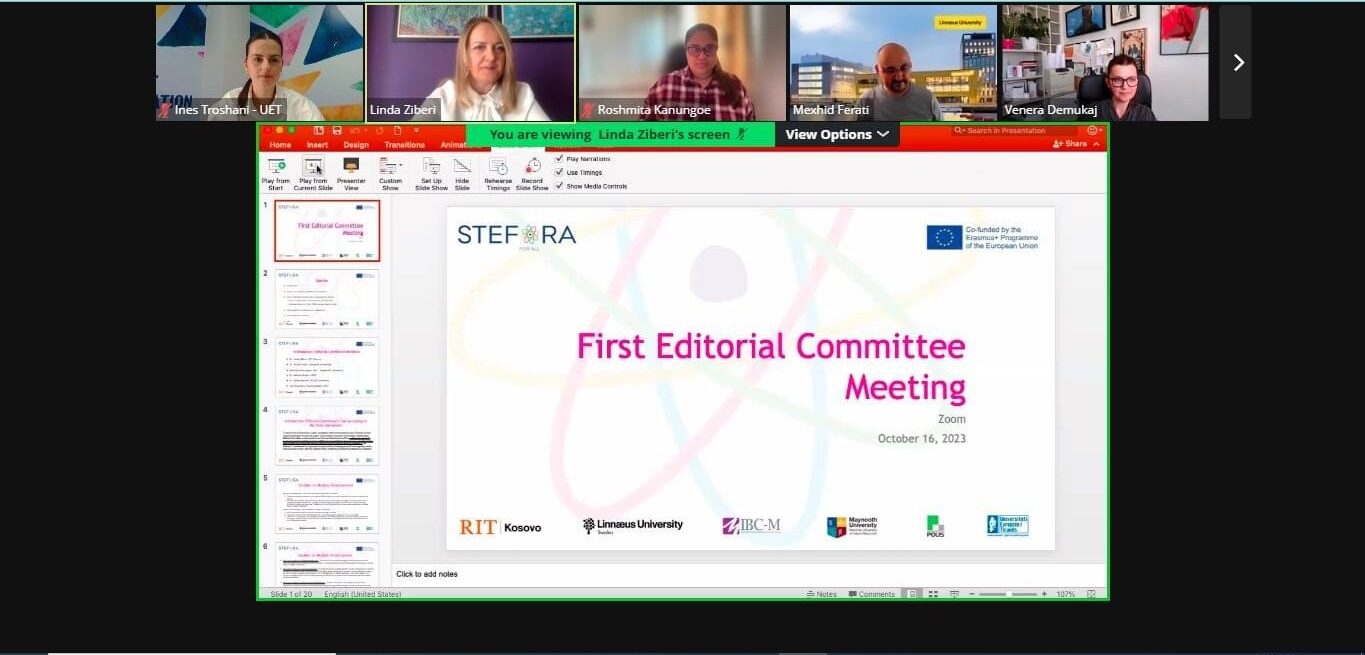
On May 25, 2023, the First Quality Assurance Meeting Took Place During the Teams Visit at UET
In the first Committee Meeting, crucial discussions took center stage, focusing on vital aspects of ongoing activities and plans for the future. The committee thoroughly reviewed and reported on the outcomes of internal evaluations of completed events and activities.
Moreover, the meeting also included an in-depth evaluation of deliverables produced in Work Package 1 (WP1), and as such, this comprehensive assessment aimed to measure the quality and effectiveness of the project outputs.
As a result of these discussions, valuable recommendations were formulated to guide future initiatives. These insights will play a pivotal role in shaping upcoming activities and deliverables, enhancing their quality.
